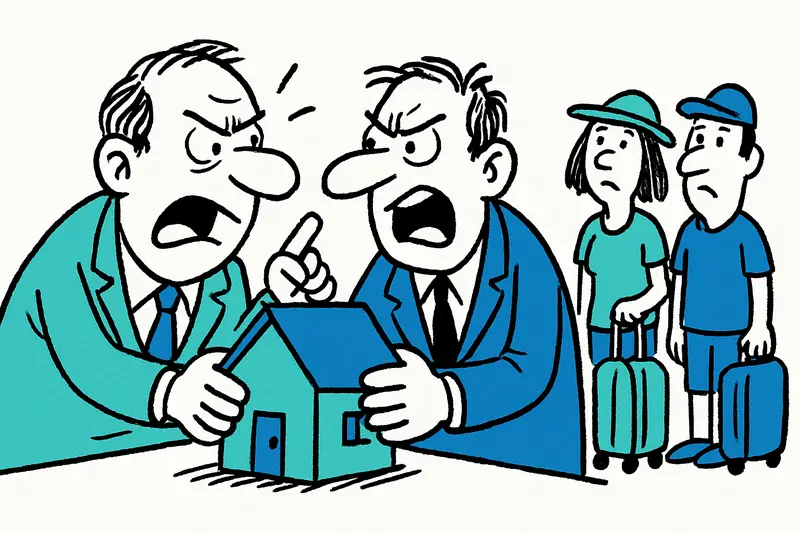The central registers and the island authority are delivering completely different numbers. While Madrid reports hundreds of cases, the Consell speaks of only a handful of real violations.
A dispute that smells like more than numbers
As I walk along Passeig del Born in the morning and see the holidaymakers with their suitcases, I sometimes ask myself: are these apartments all properly checked? The answer is more complicated than you think. Madrid and the Consell are currently waging a public feud over how many holiday accommodations on Mallorca actually breach the rules.
The bare numbers — a quick summary
The Spanish Ministry of Housing has marked tens of thousands of addresses nationwide as allegedly illegal. For the Balearics, it cites several thousand cases that have no or incomplete NRU assignment. The Consell de Mallorca responds with an almost opposite tally: in an inspection of around 1,341 listed properties, only twelve were identified as clearly illegal — fewer than one in a hundred.
What exactly is it about?
Since Royal Decree 1312/2024, holiday accommodations require a unified registration number (NRU) and a cadastral reference when offered on online portals. Many advertisers have not yet fully supplied the new papers. The ministry interprets this strictly: no NRU, no green light. The island council, by contrast, often sees only a formal backlog, not necessarily illegal use.
Gray rather than black-and-white
Especially tricky are short-term rentals of several months that are officially reported as long-term rentals but practically used like holiday apartments. I know landlords in Santa Catalina who say: "We have always had all the permits, but the new registration has been pending for months." Such cases land in a gray area — neither clearly legal nor immediately illegal.
Who decides what is legal?
The ministry is now setting central standards that apply nationwide. The Consell emphasizes local expertise: years-long permitting processes, municipal notices, neighbors who have seen the notices. The result is a credibility duel. Who is right is ultimately decided by the exact examination of each individual case — and that takes time.
My observation: numbers alone say little if it is not openly communicated which criteria were applied. For vacationers and neighbors, transparency is now the most important thing — and a bit less political rhetoric.
Similar News

Around one-fifth of Mallorca's hotels stay open in winter
Mallorca isn't completely quiet in winter: around 20 percent of the properties stay open, mainly for older visitors and ...

Quality Seal for Vacation Rentals: Holidu and Island Council Agree on Stricter Rules
The Island Council and the German booking platform Holidu have reached an agreement: Only officially licensed vacation a...

Sóller and Port de Sóller: Autumn Crowds — Buses Packed, Parking Scarce
Even in October, many visitors still flock to Sóller and Port de Sóller. Residents report full buses, missing parking sp...

Due to Fire Hazard: Discover Airlines Bans Power Bank Charging On Board – What Mallorca Travelers Need to Know Now
Discover Airlines has banned charging power banks on board. Carry-on transport remains allowed, but Mallorca passengers ...

Higher Revenues Despite Fewer German Guests: Tourism in the Balearic Islands 2025
The Balearic Islands are recording significantly higher hotel revenues this summer — hotels are raising prices, renovati...
